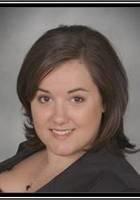Connect with hundreds of tutors like Renee
America's #1 Tutoring Platform
Who needs tutoring?
FEATURED BY
TUTORS FROM
- YaleUniversity
- PrincetonUniversity
- StanfordUniversity
- CornellUniversity

Renee
Verified Tutor since 2016
Roosevelt University
9+ Year Tutoring Streak
Education & Certifications
Roosevelt University
Current Grad Student, Secondary Education, English
University of California-Santa Barbara
Bachelors, Art History
Tutoring Subjects
CalculusAlgebraCollege EssaysLiteratureEssay EditingHistoryStudy SkillsMathScienceGrammarTest PrepSocial StudiesEnglishElementary School WritingHigh School Level American LiteratureEnglish Grammar and SyntaxHigh School WritingAP English Literature and CompositionElementary School MathPhonicsHigh School EnglishAP English Language and CompositionArt HistoryAmerican LiteratureWritingMiddle School WritingPublic SpeakingCollege Level American LiteratureElementary School ReadingMiddle School Reading ComprehensionSpelling BeeMiddle School Reading
Connect with a tutor like Renee
Tutors with Similar Experience


